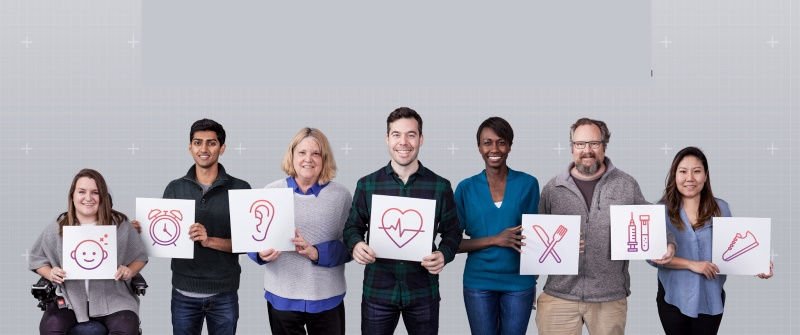

Alphabet’s life sciences unit Verily on Wednesday announced a study to track people for years, right down to their genetics, in a quest for insights into staying healthy.
Verily Life Sciences partnered with Duke University School of Medicine and Stanford Medicine for the Project Baseline study intended to collect broad health data from approximately 10,000 participants over the course of at least four years.
People in the study will make routine clinic visits, complete surveys, and use wrist-worn devices packed with sensors to gather biological data.
“The Project Baseline study has the opportunity to significantly influence our current body of knowledge by better understanding the indicators of wellness,” American Heart Association chief executive Nancy Brown said in a statement.
“The outcome of this study could inspire a new generation of tools that are geared towards disease prevention versus just diagnosis and treatment.”
Last week, Verily unveiled a wrist-worn “Study Watch” designed to gather complex health data in clinical studies.
Study Watch is meant for research and will be put to work in several studies including a multi-year study to identify patterns in the progression of Parkinson’s disease, according to a blog post by Verily team members.
Environmental, genetic, and molecular information will be included in data collected in the baseline study as part of a “journey to comprehensively map human health,” according to Verily.
“Currently, most of what we see as treating physicians are short snapshots in time of an individual and primarily after they are already ill,” said Sanjiv Sam Gambhir, chair of radiology at Stanford Medicine and director of the Canary Center for Cancer Early Detection.
“By focusing on the health of a broad population, we can eventually have a meaningful impact on the well-being of patients around the world.”
Verily was part of the Google X laboratory known for big-vision projects such as self-driving cars and internet service delivered by high-altitude balloons, but was spun into an independent unit at Google-parent Alphabet in mid-2015.
Verily works on diabetes with the French pharmaceutical group Sanofi and has another partnership in bioelectronic medicine with the British firm GlaxoSmithKline.
For the latest tech news and reviews, follow Gadgets 360 on Twitter, Facebook, and subscribe to our YouTube channel.




